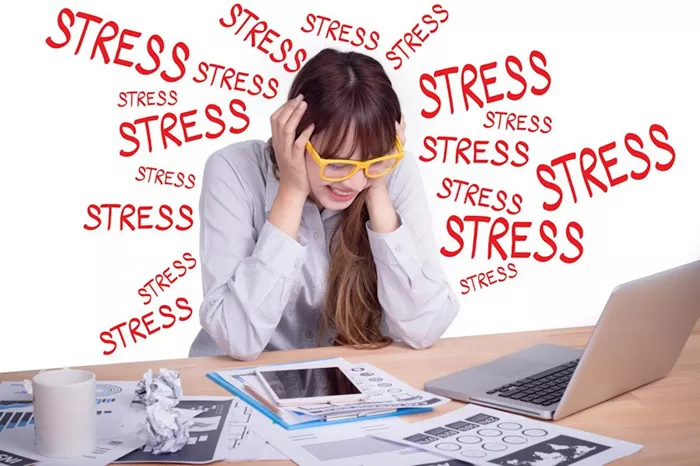Stress is an unavoidable part of life. Whether it stems from work, relationships, financial difficulties, or other challenges, everyone experiences stress at some point. However, while short-term stress can be a motivating factor, chronic stress can have significant negative effects on both physical and mental health. When stress becomes overwhelming or prolonged, it can contribute to the development of various mental health disorders. This article explores the different types of mental illnesses that stress can cause, offering a comprehensive understanding of their symptoms, underlying mechanisms, and treatment options.
Stress and Its Impact on Mental Health
What is Stress?
Stress is the body’s natural response to any demand or challenge. It is a physiological and psychological state that occurs when an individual perceives a threat or a demand that exceeds their coping abilities. Stress triggers the “fight or flight” response, releasing hormones like adrenaline and cortisol, which prepare the body to respond to the perceived threat.
While stress can be beneficial in short bursts, helping individuals to react quickly in dangerous situations, chronic stress can be harmful. Prolonged exposure to stress hormones can disrupt nearly every system in the body, leading to a range of health problems, including mental illness.
How Does Stress Affect the Brain?
Chronic stress can lead to structural changes in the brain, particularly in areas involved in memory, learning, and emotional regulation. The hippocampus, which plays a critical role in forming new memories, can shrink under prolonged stress, impairing memory and cognitive function. The prefrontal cortex, responsible for decision-making and executive function, can also be affected, leading to difficulties in concentrating and making decisions.
Moreover, chronic stress can lead to an overactive amygdala, the part of the brain responsible for processing emotions, particularly fear and anxiety. An overactive amygdala can heighten the body’s stress response, creating a vicious cycle that exacerbates stress and its negative effects on mental health.
Mental Illnesses Caused by Stress
1. Generalized Anxiety Disorder (GAD)
Generalized Anxiety Disorder is characterized by excessive, uncontrollable worry about various aspects of daily life, such as work, health, or relationships. While anxiety is a normal response to stress, people with GAD experience anxiety that is disproportionate to the situation and persists even when there is no apparent reason for concern.
Symptoms of GAD:
- Persistent worry or fear
- Restlessness or feeling on edge
- Fatigue
- Difficulty concentrating
- Irritability
- Muscle tension
- Sleep disturbances
How Stress Contributes to GAD
Chronic stress can prime the brain to be in a constant state of alertness, making it difficult for individuals to relax and causing them to perceive threats even when they are not present. This heightened state of alertness can evolve into GAD, where the individual becomes consumed by worry and fear, impacting their ability to function in daily life.
Treatment for GAD
Treatment for GAD typically involves a combination of therapy and medication. Cognitive-behavioral therapy (CBT) is particularly effective in helping individuals identify and challenge irrational thoughts and develop coping strategies. Medications such as selective serotonin reuptake inhibitors (SSRIs) or benzodiazepines may also be prescribed to manage symptoms.
2. Panic Disorder
Panic disorder is characterized by recurrent, unexpected panic attacks—sudden episodes of intense fear that trigger severe physical reactions when there is no real danger. Panic attacks can be terrifying and may cause individuals to fear having more attacks, leading to avoidance behaviors that can significantly impair daily life.
Symptoms of Panic Disorder
- Sudden and repeated panic attacks
- A feeling of being out of control during a panic attack
- Intense worry about when the next attack will happen
- Avoidance of places where panic attacks have occurred
- Physical symptoms such as heart palpitations, sweating, trembling, and shortness of breath
How Stress Contributes to Panic Disorder
Chronic stress can create a heightened state of anxiety, where the body is constantly on high alert. This can lead to the development of panic disorder, where the body’s stress response is triggered without any apparent reason, resulting in a panic attack. Over time, the fear of experiencing another attack can lead to the development of panic disorder.
Treatment for Panic Disorder
Panic disorder is often treated with a combination of therapy and medication. Cognitive-behavioral therapy (CBT) is highly effective in helping individuals understand and manage their panic attacks. Medications such as SSRIs or benzodiazepines may also be used to reduce the frequency and severity of panic attacks.
3. Depression
Depression, also known as major depressive disorder (MDD), is a common and serious mental illness that negatively affects how a person feels, thinks, and acts. It is more than just feeling sad or going through a rough patch—it is a persistent feeling of sadness or loss of interest that can interfere with daily life.
Symptoms of Depression
- Persistent feelings of sadness, emptiness, or hopelessness
- Loss of interest in activities once enjoyed
- Fatigue or lack of energy
- Changes in appetite or weight
- Difficulty sleeping or oversleeping
- Feelings of worthlessness or excessive guilt
- Difficulty concentrating or making decisions
- Thoughts of death or suicide
How Stress Contributes to Depression
Prolonged exposure to stress can lead to an imbalance in neurotransmitters such as serotonin, dopamine, and norepinephrine, which play a key role in regulating mood. Chronic stress can also alter the brain’s structure, particularly in areas associated with emotion regulation, such as the hippocampus and prefrontal cortex, leading to the development of depression.
Treatment for Depression
Depression is typically treated with a combination of therapy and medication. Cognitive-behavioral therapy (CBT) and interpersonal therapy (IPT) are effective in addressing the thought patterns and relationship issues that contribute to depression. Antidepressant medications, such as SSRIs or serotonin-norepinephrine reuptake inhibitors (SNRIs), are often prescribed to help balance neurotransmitters in the brain.
See Also: What Diseases are Caused by Depression?
4. Post-Traumatic Stress Disorder (PTSD)
Post-Traumatic Stress Disorder is a mental health condition that can develop after experiencing or witnessing a traumatic event, such as a natural disaster, war, accident, or assault. While not everyone who experiences trauma will develop PTSD, chronic stress can increase the likelihood of its onset.
Symptoms of PTSD
- Intrusive memories or flashbacks of the traumatic event
- Nightmares about the event
- Severe emotional distress or physical reactions to reminders of the trauma
- Avoidance of places, people, or activities that trigger memories of the event
- Negative changes in thinking and mood, such as feelings of detachment, hopelessness, or difficulty experiencing positive emotions
- Hyperarousal symptoms, such as being easily startled, feeling tense, or having difficulty sleeping
How Stress Contributes to PTSD
Chronic stress can weaken an individual’s ability to cope with traumatic events, making them more vulnerable to developing PTSD. The body’s prolonged stress response can lead to an overactive amygdala, impairing the brain’s ability to regulate emotions and process traumatic memories, resulting in the development of PTSD.
Treatment for PTSD
Treatment for PTSD often involves therapy, medication, or a combination of both. Cognitive-behavioral therapy (CBT), particularly trauma-focused CBT, is effective in helping individuals process traumatic memories and reduce symptoms. Eye Movement Desensitization and Reprocessing (EMDR) is another therapeutic approach used to treat PTSD. Medications such as SSRIs may also be prescribed to manage symptoms.
5. Obsessive-Compulsive Disorder (OCD)
Obsessive-Compulsive Disorder is characterized by persistent, unwanted thoughts (obsessions) and repetitive behaviors (compulsions) that the individual feels driven to perform. While everyone has occasional intrusive thoughts, people with OCD experience them to a degree that interferes with their daily life.
Symptoms of OCD
- Repeated, persistent, and unwanted thoughts, urges, or images that cause distress or anxiety
- Repetitive behaviors or mental acts that an individual feels compelled to perform to alleviate the anxiety caused by obsessions
- Time-consuming rituals that interfere with daily activities
- Avoidance of situations that might trigger obsessions or compulsions
How Stress Contributes to OCD
Stress can exacerbate the symptoms of OCD by increasing the frequency and intensity of obsessions and compulsions. Chronic stress can create a sense of chaos and loss of control, leading individuals with OCD to engage in compulsive behaviors as a way to regain a sense of control.
Treatment for OCD
OCD is typically treated with a combination of therapy and medication. Exposure and Response Prevention (ERP), a type of CBT, is highly effective in helping individuals confront their obsessions and reduce compulsive behaviors. Medications such as SSRIs are also commonly prescribed to help manage symptoms.
6. Acute Stress Disorder (ASD)
Acute Stress Disorder is a condition that can occur in the immediate aftermath of a traumatic event, similar to PTSD. However, ASD symptoms typically begin within a few days of the trauma and last for a shorter duration.
Symptoms of ASD
- Intrusive memories or flashbacks of the traumatic event
- Avoidance of reminders of the trauma
- Negative changes in thinking and mood
- Dissociative symptoms, such as feeling detached from oneself or the world around
- Hyperarousal symptoms,such as easily startled, feeling tense, or having difficulty sleeping
How Stress Contributes to ASD
Chronic stress can lower an individual’s resilience to trauma, making them more susceptible to developing ASD after a traumatic event. The stress response triggered by the trauma can overwhelm the individual’s coping mechanisms, leading to the development of ASD.
Treatment for ASD
Treatment for ASD typically involves short-term therapy aimed at helping the individual process the trauma and develop coping strategies. Cognitive-behavioral therapy (CBT) is often used to address the symptoms of ASD. In some cases, medications may be prescribed to manage symptoms.
The Importance of Stress Management
Preventing Mental Illness through Stress Management
Managing stress is crucial for preventing the onset of mental illnesses. While it is impossible to eliminate all sources of stress, individuals can take steps to manage their stress levels and reduce their risk of developing mental health disorders.
Effective Stress Management Techniques
Regular Exercise: Physical activity can help reduce stress by releasing endorphins, which are natural mood elevators. Exercise also helps to reduce the levels of stress hormones in the body, such as adrenaline and cortisol.
Mindfulness and Meditation: Practicing mindfulness and meditation can help individuals focus on the present moment, reducing anxiety and stress. These practices can also improve emotional regulation and increase resilience to stress.
Healthy Diet: A balanced diet can improve overall health and help the body cope with stress. Foods rich in omega-3 fatty acids, antioxidants, and vitamins can support brain function and reduce the impact of stress on mental health.
Adequate Sleep: Quality sleep is essential for mental and physical health. Sleep helps to regulate stress hormones and allows the brain to recover from the day’s activities.
Social Support: Connecting with friends, family, or support groups can provide emotional support and reduce feelings of isolation, which can exacerbate stress.
Seeking Professional Help
If stress is becoming overwhelming or is contributing to symptoms of mental illness, it is important to seek professional help. A mental health professional can provide support, guidance, and treatment options tailored to the individual’s needs.
Conclusion
Stress is a natural part of life, but when it becomes chronic or overwhelming, it can lead to the development of various mental illnesses, including Generalized Anxiety Disorder, Panic Disorder, Depression, Post-Traumatic Stress Disorder, Obsessive-Compulsive Disorder, and Acute Stress Disorder. Understanding the connection between stress and mental illness is crucial for recognizing symptoms and seeking appropriate treatment. By managing stress through healthy lifestyle choices and seeking professional help when needed, individuals can reduce their risk of developing mental health disorders and improve their overall well-being.
[inline_related_posts title=”You Might Be Interested In” title_align=”left” style=”list” number=”6″ align=”none” ids=”11137,9693,9689″ by=”categories” orderby=”rand” order=”DESC” hide_thumb=”no” thumb_right=”no” views=”no” date=”yes” grid_columns=”2″ post_type=”” tax=””]

































